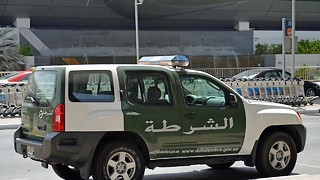The UN Human Rights Council is “a highly biased body”
Yiftah Curiel, Spokesperson of the Embassy of Israel, slams “enemies of Israel” and dangerous “slurs” against it

“There is a lot of mistrust and fear on both sides.” In an interview with Varsity during his visit to the Union Society, Yiftah Curiel, spokesperson of the Israeli embassy, gives his views on what has been dubbed the world's “most intractable conflict” between Israel and Palestine.
He was quick to highlight his belief that “peace between Israel and the Palestinians will be decided at the negotiating table” and condemned “any initiatives which allow either side to get away from that table in the belief that they can make easier gains elsewhere.”
He condemned international movements to boycott Israel and suggested that such movements aim not only at peace for Palestine but groups such as the BDS wish to “eliminate Israel as a Jewish state, not just boycott it. Their aims are much more sinister than that.”
When asked about the situation in Gaza, Curiel described it as a "tragedy" the cause of which is the rule of the “terror organisation called Hamas, which has been recognised as a terrorist group across Europe, including in the UK.”
These self same European nations also form part of the UN Council of Human Rights, which has made many resolutions condemning Israel for its abuses of human rights. Curiel rejects these as false, arguing: “You have to remember that this is a highly biased body which since it has been created in 2006 has had more resolutions on Israel than the entire world combined.”
The UN Council of Human Rights is a branch of the UN, whose original assembly passed in 1947 the resolution which declared Israel’s statehood as a Jewish state, but Curiel feels that the human rights arm in Geneva founded in 2006 is fundamentally biased against Israel.
When asked about the possible motivation of this bias he responded by saying: “It is simply common sense; there are so many more resolutions (made by the council) on Israel. If you have countries like Iran and North Korea and Syria who are enemies of Israel as part of the council, who are themselves human rights violators who wish to deflect from their own activity, the motivation for them I think is obvious.”
When asked about a comment made by Israeli academic and journalist Amira Hass, who has lived in Gaza and described it as a “huge concentration camp”, Curiel highlighted his belief that “comparisons between Israel and Nazi Germany are clearly anti-Semitic demonisation of Israel.”
He also condemned the label of ‘apartheid ‘ which protestors were shouting outside the Union, calling it a “dangerous slur” which “makes people think that Israel will be gone, like the apartheid regime in South Africa and therefore there is no need to negotiate a peace, because we will simply disappear.”
While Varsity conducted the interview, a significant group of protesters had formed outside the Union, some of whom were seemingly unaffiliated with Palestine Society. One protester, when asked about Curiel’s comments, described them as “the usual shit, calling everyone either biased or anti-Semitic”.
However, Curiel believes that there is hope, highlighting that day the Palestinian and Israeli Prime Minister shook hands for the “first time in a long time” at the Paris Climate Conference. He believes fervently that the root to peace is "dialogue" and wishes to overcome the “fear and mistrust which is our biggest challenge.”
He remarked that he was disappointed that Cambridge University Palestine Society had chosen to protest rather than to engage with his talk in the Union as he felt they had a “value contribution to make” to the discussion.
He highlighted that “20% of Israel is non–Jewish” and that Palestinians in Israel are “not only voting in parliament but have justices in the Israeli supreme court.”
He spoke of the wish of the Israeli government to ‘meet’ with Mahmoud Abbas, President of Palestine “any time anywhere,” and stressed with passion that dialogue at the negotiating table “is the only way forward”.
 News / Newnham postgrads referred to homeless charities as College runs out of rooms31 July 2025
News / Newnham postgrads referred to homeless charities as College runs out of rooms31 July 2025 Arts / William Morris’ little-known labours in Cambridge25 July 2025
Arts / William Morris’ little-known labours in Cambridge25 July 2025 Lifestyle / Break-ups in the bubble31 July 2025
Lifestyle / Break-ups in the bubble31 July 2025 News / Lucy Cav secures £47m loan to expand student accommodation30 July 2025
News / Lucy Cav secures £47m loan to expand student accommodation30 July 2025 Theatre / One year, many stages: the fresher actors behind Cambridge theatre31 July 2025
Theatre / One year, many stages: the fresher actors behind Cambridge theatre31 July 2025








